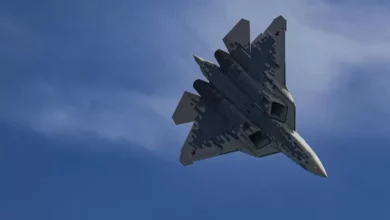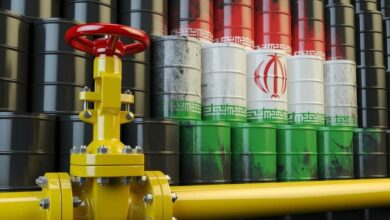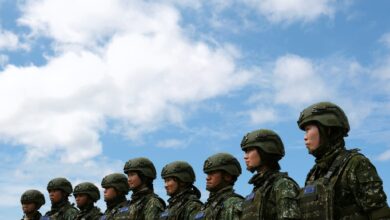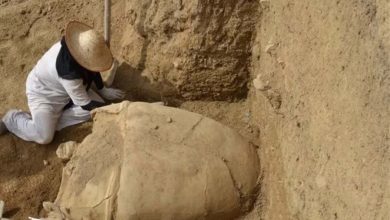
Russia and Iran wage economic war in Syria
US, WASHINGTON (ORDO NEWS) — The discord between members of the Assad clan can cause great distortions in the power structure of the Syrian state. Rami Makhlouf, a billionaire cousin of Syrian President Bashar al-Assad, in several Facebook videos carefully threatened the head of state. A power struggle is under way in Damascus, which in the future may lead to significant consequences for the country.
Makhlouf controls most of the Syrian economy. And the occupying power Russia, like Iran, wants to receive most of it in compensation for the military operation of the past years. Family discord is only part of a larger conflict of interest that extends to Moscow and Tehran.
The video that Mahlouf posted on his Facebook page looks like a confession of a tormented person. The state requires $ 120 million in taxes from his Syriatel company. “But I always paid taxes! - assures Makhlouf in the video and directly begs his cousin Assad: - Mr. President, please, this is true! ”
In the second video, he says that the special services will never conduct an investigation against him, and states: “If we continue in the same vein, the situation will be difficult for the country.” A cautious threat is probably more likely a sign that the alignment of forces in Syria could change soon.
It is believed that a repressive policy against the rebels is concentrated around cousin Assad Mahluf. In power circles in Damascus, he has long advocated for stiff suppression of initially peaceful protests, political analysts say. The billionaire funded a number of military units, including from Iran, to crush the uprisings in different parts of the country. Tehran later received a license for telephone services in Syria from Mahluf Syriatel.
Conflicting signals from Moscow
The Iranians turned Syria into their gold mine. For the occupying power of Russia, this is a good reason to demand a bigger piece of the pie for yourself. In Syria, Russia and Iran are fighting an economic war. So, Moscow was able to get parts of the Syrian production of phosphate rocks, pushing the Iranians out of this sphere.
Syria is too poor to even partially cover the costs of a Russian military operation. Moscow may try to turn to the means of Makhlouf. Thus, Russia could compensate at least part of the military spending.
The Syrian state’s measures against Makhlouf are a sign that Damascus is definitely fighting on the side of Russia. Or was forced to act like that. Back in late April, the Syrian authorities arrested the ships of Makhlouf companies that came from Egypt. Allegedly, drugs were discovered on them.
The Syrian war has been going on for nine years - much longer than World War II. Hundreds of thousands of Syrians died during this time, millions became refugees inside Syria and abroad. First of all, Russia provided Assad with political survival during the massive military campaign, which lasted from the fall of 2015. Moscow has invested billions in this and is now more or less publicly demanding compensation.
Conflicting signals have been coming from the Kremlin recently to Assad. The media, owned by oligarch Yevgeny Prigogine, a Kremlin-related oligarch, recently published material with sharp criticism of the Syrian president. He was described as “weak” and “incapable.” In addition, the data of the so-called survey of the ultra-conservative Moscow Foundation for the Protection of National Values was published, which recorded a sharp drop in Assad’s rating.
In the upcoming presidential election in 2021, only a little more than 30% of Syrians would have voted for him. However, the materials soon disappeared. A hacker attack has been reported. Probably, the Turkish special services are behind this, they said in Moscow.
But not so simple. Other Russian media are now writing about growing corruption in Syria. The tone here is set by the head of the Moscow platform of the Syrian opposition, Qadri Jamil, as well as former Russian ambassador to Damascus, Alexander Aksenenko. The Assad clan appears again and again in the center of criticism along with Rami Makhlouf, who has now fallen out of favor in Damascus.
“The main element of the Middle East policy of Tehran”
Messages about the information exchange between Assad and Putin, on the contrary, completely disappeared from the media. The latest news on telephone calls dates back to March 20. Moreover, earlier such reports were part of the agenda, including to document the influence of the Kremlin on Damascus.
And Iran has been present in Syria since 2013, first with the help of its own army in the fight against the Islamic State *, and later mainly with the help of military forces in order to suppress small uprisings and establish its own warm spot in the country. “Militarily, Iran will not leave Syria,” said Amos Yadlin, former head of the Israeli military intelligence. Syria is an important Arab country, having access to the Mediterranean Sea, it is “the main element of Tehran’s Middle East policy.”
Israel recently attacked Iranian positions in northwestern Syria. Thus, Jerusalem wanted to show the Russians that Israel does not accept Iranian activities in Syria, said Yadlin, now executive director of the Institute for National Security Studies in Tel Aviv. The Israeli government wants to make it clear to Damascus, and first of all to Moscow, that it is not worthwhile to restore the destroyed Syrian infrastructure while Tehran in Syria builds up arms and threatens Israel.
Assad himself does not publicly speak out on these topics. Clearly, his own room for maneuver is decreasing day by day. Russia is by far the largest guarantee of its political survival. Assad’s actions against his own cousin can only be the beginning to confirm his commitment to Kremlin aides.
—
Online:
Contact us: [email protected]
Our Standards, Terms of Use: Standard Terms And Conditions.









